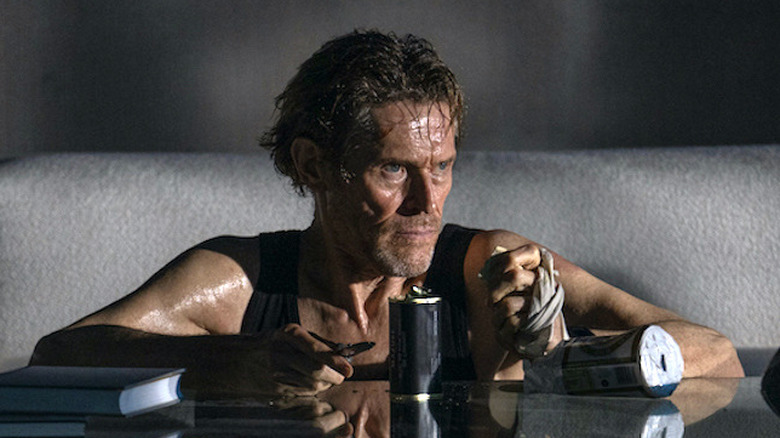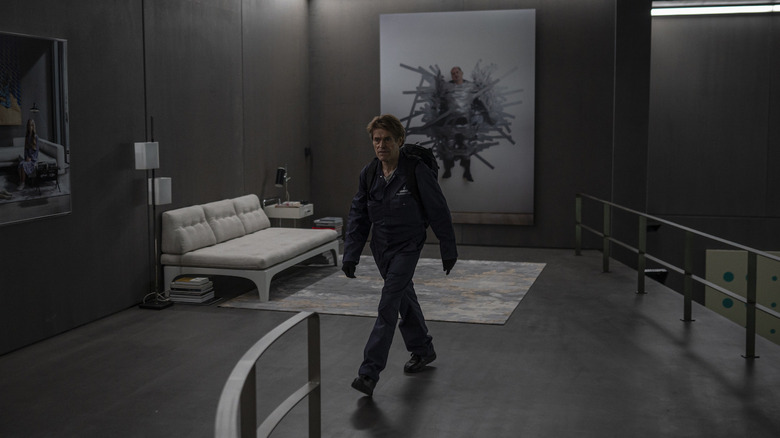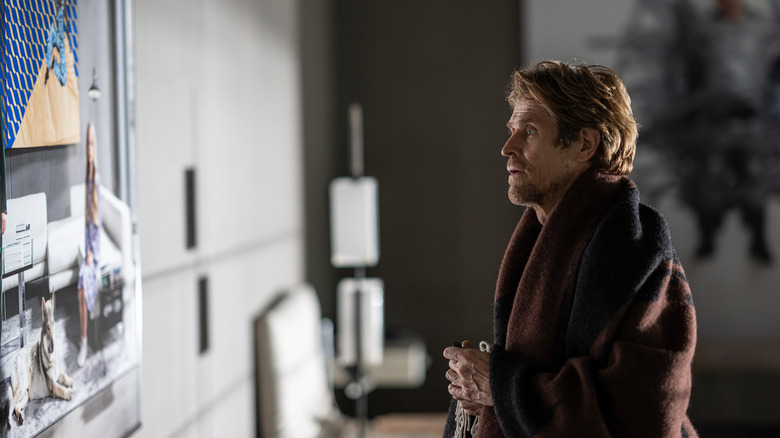Willem Dafoe Goes Inside His Astonishing Performances - Exclusive Interview
Willem Dafoe has spent over 40 years making movies. In that time, he's played all kinds of men, from the virtuous, like Sergeant Elias in "Platoon," to the villainous, like Norman Osborn in the "Spider-Man" movies, to the just plain odd, like Max Schreck in "Shadow of the Vampire." One topic that's come up repeatedly is isolation and its effects, and nowhere is that more relevant than in Dafoe's latest, "Inside."
In "Inside," Dafoe plays Nemo, an art thief whose latest heist has gone terribly awry. Trapped in the New York penthouse he'd hoped to strip of its art, Nemo instead must make some very serious decisions to survive. As his character struggles, Dafoe essentially puts on a master class in solo acting that takes us up and down the emotional spectrum.
Dafoe sat down for an exclusive interview with Looper about his interest in characters who are isolated, whether he could have played his role in "Inside" when he was younger, and whether he prefers big-budget or independent fare.
Isolation and growing older
Isolation is something that's come up throughout your career, in movies like "The Last Temptation of Christ," "The Lighthouse," and of course this movie, "Inside." These characters get disconnected from the outside world, and then they go mad to some degree. What attracts you to these projects?
I like these characters in extreme situations because they ask questions of themselves. When I apply myself to pretending those things, I ask questions of myself. For example, I don't think this character [in "Inside"] is going mad; I think he's been forced to look inside, he's forced to deal with himself. I'm a firm believer [that] one of the things we have to do in life is we have to get our house in order. We got to be at peace with ourselves before we can be useful to anyone else. These characters are all searching for something and they're all questioning something, and I like that because when you approach those characters in your imagination, it also has an effect on you.
Is this a role that you could have performed when you were younger since it is so isolated? Or does it represent your growth as an actor?
That's interesting. When I was younger, I think it would've meant less because [when] it's a younger man trapped in that situation, it feels very different. As an older man now, [he has a] relationship to art and [a] relationship to the luxury he's had a lot of his life, so his station is kind of fixed, where a younger man is just beginning his adult life. So it's very different. I think I'm the right age to play it now. I think it wouldn't make so much sense if I was younger.
It's all about not getting stuck
You have done some huge big-budget movies, and you've done independent fare like this. Do you have a preference between the two?
I don't. Each film is different. Each experience is different. Each role is different. Each director is different. There's so many moving pieces. Also, I need different things at different times. My needs change. So I say, mix it up. Don't be too tight on your rules. Every time something is proposed to you or you encounter something, check it out. Do due diligence. Think, "Maybe I've been asleep on this. Maybe I should try this."
It's all about not getting stuck. That's my mantra lately. Keep on questioning; keep on shaking yourself down. How deep that shakedown is, I don't know. But at least when you vary things, you can start to practice flexibility because you do have to change your way of performing, your way of preparing, your way of dealing with people socially and professionally for each project. It keeps you loose so you're ready for anything, and that is what everybody should be aspiring to. Bring it on. Get to the point where you aren't afraid.
This interview has been edited for clarity.
"Inside" is in theaters on March 17.


